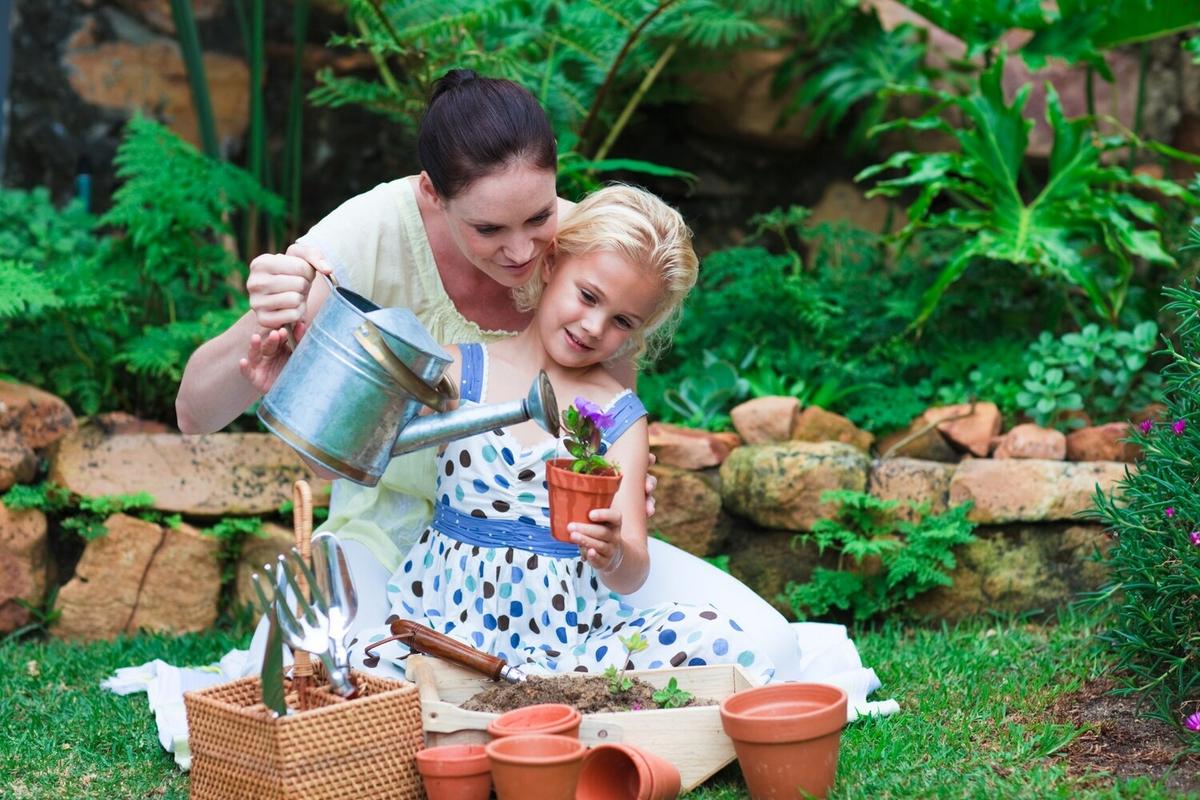
The Benefits of Gardening as a Family Activity
Gardening can be a delightful and enriching family activity. It’s not just about growing plants; it’s about cultivating a sense of togetherness, responsibility, and appreciation for nature. Whether you have a sprawling backyard or a small balcony, gardening as a family can offer numerous benefits that extend beyond the garden bed.
Why Gardening Together is Beneficial
Gardening offers a multitude of advantages, from fostering physical health to enhancing mental well-being. Let’s explore some of the key benefits:
1. Physical Health
Gardening is a fantastic way to get everyone moving. According to the Centers for Disease Control and Prevention (CDC), gardening activities like digging, planting, weeding, and watering can burn up to 300 calories per hour. This makes it an excellent way to keep the family active and fit.
2. Mental Well-being
Research from the American Society for Horticultural Science suggests that gardening can significantly reduce stress levels and promote mental clarity. The act of nurturing plants and watching them grow can be incredibly therapeutic.
3. Educational Opportunities
Gardening is a hands-on learning experience for children and adults alike. From understanding the life cycle of plants to learning about ecosystems and weather patterns, the garden is a living classroom. Experts from the National Gardening Association note that gardening can help children develop a variety of skills, including responsibility, patience, and problem-solving.
4. Family Bonding
Working together in the garden provides a unique opportunity for families to strengthen their bonds. Sharing the responsibilities and successes of gardening can bring family members closer together, fostering a sense of teamwork and cooperation.
5. Sustainable Living
Gardening teaches families about sustainable living and the importance of reducing waste. Growing your own vegetables and herbs can decrease reliance on store-bought produce and reduce your carbon footprint. According to a study by the University of California, home gardening can reduce food waste by up to 20%.
Actionable Tips for Family Gardening
Ready to start your family gardening journey? Here are some tips to get you going:
- Start Small: Begin with a few easy-to-grow plants like tomatoes, basil, or lettuce. This will make the process more manageable and enjoyable.
- Assign Roles: Give each family member a specific task, whether it’s watering the plants, weeding, or harvesting. This creates a sense of ownership and responsibility.
- Make it Fun: Incorporate fun activities like garden-themed crafts or cooking with your homegrown produce. This will keep everyone engaged and excited about gardening.
- Learn Together: Take this opportunity to learn about different plant species, gardening techniques, and environmental conservation. There are numerous online resources and local workshops to help you get started.
Common Questions About Family Gardening
- What if we don’t have a backyard?
No backyard? No problem! You can start a container garden on a balcony, patio, or even a windowsill.
- How do we keep pests away naturally?
Use natural pest control methods like introducing beneficial insects (ladybugs, for example) or using homemade sprays made from soap and water.
- What are some easy plants for beginners?
Start with plants like radishes, marigolds, and mint. They are easy to grow and care for.
- How much time should we spend gardening?
A few hours a week is sufficient to maintain a small garden. The key is consistency.
Comparison Table: Container Gardening vs. Traditional Gardening
| Aspect | Container Gardening | Traditional Gardening |
|---|---|---|
| Space Requirement | Small | Large |
| Mobility | High | Low |
| Initial Cost | Lower | Higher |
| Maintenance | Lower | Higher |
| Plant Variety | Limited | Extensive |
| Soil Quality Control | High | Variable |
| Water Usage | Efficient | Higher |
| Accessibility | Higher | Variable |
Pro Tips for Successful Family Gardening
Here are some expert tips to ensure your family gardening project is a success:
- Choose Native Plants: Native plants are adapted to your local climate and soil, making them easier to grow and maintain.
- Rotate Crops: Rotating crops each season can improve soil health and reduce pest issues.
- Compost: Start a compost bin to recycle kitchen and garden waste into valuable fertilizer for your plants.
- Stay Patient: Gardening is a process that requires time and patience. Celebrate small successes and learn from any setbacks.
Conclusion
Gardening as a family is more than just a hobby; it’s an opportunity to connect with nature, learn together, and cultivate a healthier, more sustainable lifestyle. So grab your gloves and trowels, and start planting the seeds for a brighter future today!


